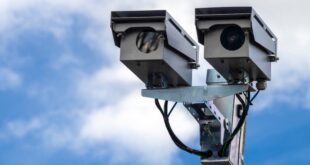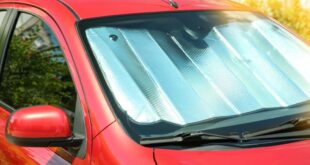Certain foods and everyday products, like ripe fruit or mouthwash, could lead to a false positive in a breathalyser test — even if no alcohol was consumed.
Credit : LightField Studios / Shutterstock
A surprising number of everyday foods and products — including a fruit you’ve probably eaten recently — could trigger a false positive at a roadside breath test. Drivers are urged to be aware of the new, more strict limits that will soon be implemented.
You’d think the only way to fail a breath test is by drinking alcohol — but that’s not always the case. Some foods and everyday items can be registered as alcohol in breath tests even if they have not been consumed.
Can bananas produce a false positive in a breath test?
Yes, really. When a banana becomes very ripe — especially if it’s stored in warm conditions — it starts to ferment naturally, producing tiny amounts of ethanol. This is the same alcohol that’s found in wine or beer. In most cases, your body processes it so quickly that it’s harmless — but if you eat one just before a breath test, the device could still detect it and flag you as over the limit.
Other products with similar effects include liqueur-filled chocolates, cough syrup, and even mouthwash — all of which may contain trace amounts of alcohol. They can lead to false positives when consumed just before driving.
What’s the good news? These effects will usually fade within 10 to twenty minutes. The problem is, if you’re pulled over during that small window, it could be enough to cause confusion — or worse, get you fined.
Spain lowers the drinking limit for drivers in 2025
Spain has a reputation for being tough on drunk driving. The legal limit for drink-driving is currently 0.5 grams of alcohol per litre (or 0.3 grams if you’re a new driver or a professional). This is about to change.
From 2025, the limit is expected to be cut to 0.2 grams per litre across the board — part of a wider push by the DGT (Dirección General de Tráfico) to reduce alcohol-related accidents and move closer to a zero-tolerance policy on drink-driving.
Then things become complicated. As the limit drops, false positives become more likely — especially for drivers who’ve used an alcohol-based mouthwash or taken over-the-counter cough medicine without realising what’s inside.
While most of these cases don’t result in serious penalties — particularly if followed up with a second, more accurate test — they still cause unnecessary stress, and in some cases, legal complications.
In other European countries where the limit is lower, similar debates are already underway. Some countries have introduced more specific breathalyzers, while others require that product labels warn users of alcohol content.
Spain introduces no-contact breathalyzers for drivers
Adding to the changes, the DGT has started using non-contact breathalysers — devices that can detect alcohol simply by having drivers speak near them, rather than blowing directly into a tube.
These tools are faster and cleaner, which is especially helpful during roadside inspections or for drivers who suffer from respiratory conditions. They only provide a preliminary reading. If they detect alcohol, a second test using a traditional device — or even a blood test — is needed to confirm the result.
This is part of a wider strategy by the DGT to improve road safety and enforce laws more efficiently. But with fines ranging from €500 to €1,000, drivers are being reminded to be cautious — not just with drinks, but with anything that could unintentionally throw off a breath test.
So, if you’ve just had a ripe banana, a spoonful of cough syrup, or a quick rinse with mouthwash — it might be worth waiting 20 minutes before getting behind the wheel. Just in case.
Keep up with the latest news in Spain
 Costa News Spain Breaking News | English News in Spain.
Costa News Spain Breaking News | English News in Spain.





